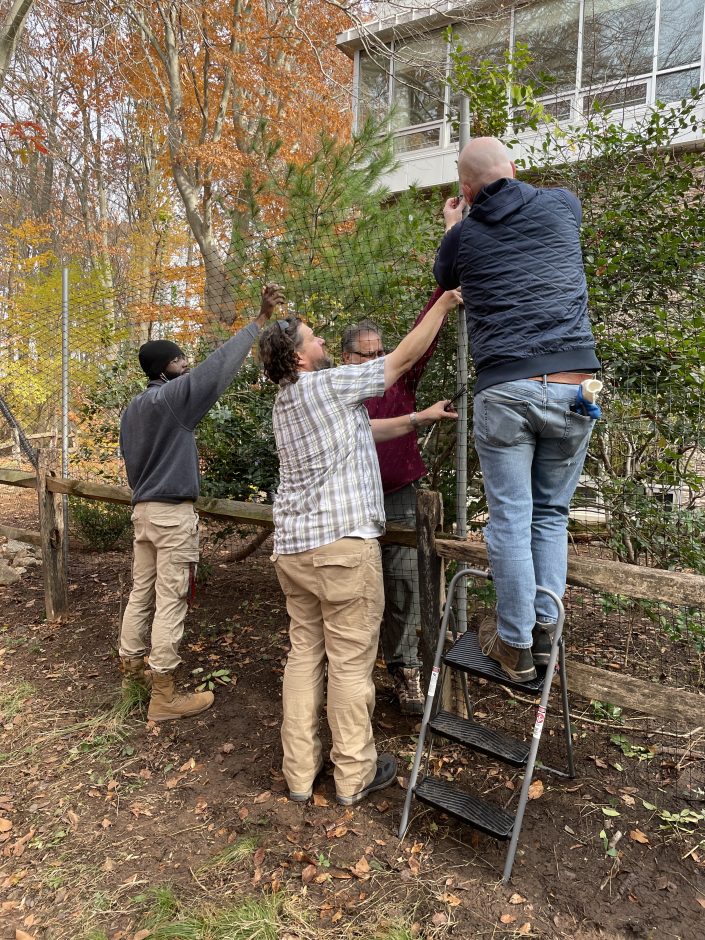A Certified Wildlife Habitat Restoration in Progress
By Meghan Kolk, Wildlife Biologist

This fall CWF worked with the staff at the Trailside Nature and Science Center at Watchung Reservation in Union County, New Jersey to restore their Certified Wildlife Habitat. A Certified Wildlife Habitat must include sources of food, water, cover and places to raise young, and must be maintained using sustainable practices. Their garden had suffered from years of neglect and had become overgrown and choked out by weeds.
The first task was to tackle the major cleanup with the goals of opening the garden up to more sunlight, making room for new plantings, and giving the garden a fresh and clean appearance. CWF staff, interns and volunteers joined the Trailside Center’s staff and spent a day pulling weeds, digging up unwanted and overgrown plants, trimming shrubs and trees, clearing vines from trees, and raking and blowing leaves. Dead, dying, or damaged trees and shrubs were cut down. We left the healthy and beneficial trees, shrubs and herbaceous plants that will be the backbone of the refreshed garden. At the end of the day, the result of cleanup was remarkable. Sunlight can now reach the ground, and the garden became a clean slate to add new plantings that will benefit birds, bees, butterflies, and other wildlife.


Trailside garden before and after cleanup.
The next step was to install a new deer fence around the garden. The Trailside Center lies within a wooded area and deer are drawn to the garden to munch on the shrubs and plants. In order to keep deer from destroying the garden, while allowing birds and other wildlife to utilize it, we installed a new eight-foot-high deer fence around the garden to replace one that had fallen down years ago. At the same time, we planted some new trees and shrubs in the garden that will be able to grow without the pressure of deer browse. We planted only native species that will attract birds, hummingbirds, bees, and butterflies to the garden.
In the spring, we will return to plant native herbaceous perennial plants that will also benefit birds, hummingbirds, bees, and butterflies. We will be sure to plant some host species for native butterflies, such as milkweed for monarchs. We plan to make a corner of the garden that caters specifically to hummingbirds. The garden is already home to a beautiful man-made creek flowing into a pond that draws birds and frogs. Several types of bird feeders, squirrel feeders and nest boxes are scattered throughout the garden as well. The restored garden will be unveiled this spring for visitors to observe through the viewing windows inside the Trailside Center.

Discover more from Conserve Wildlife Foundation of NJ
Subscribe to get the latest posts sent to your email.